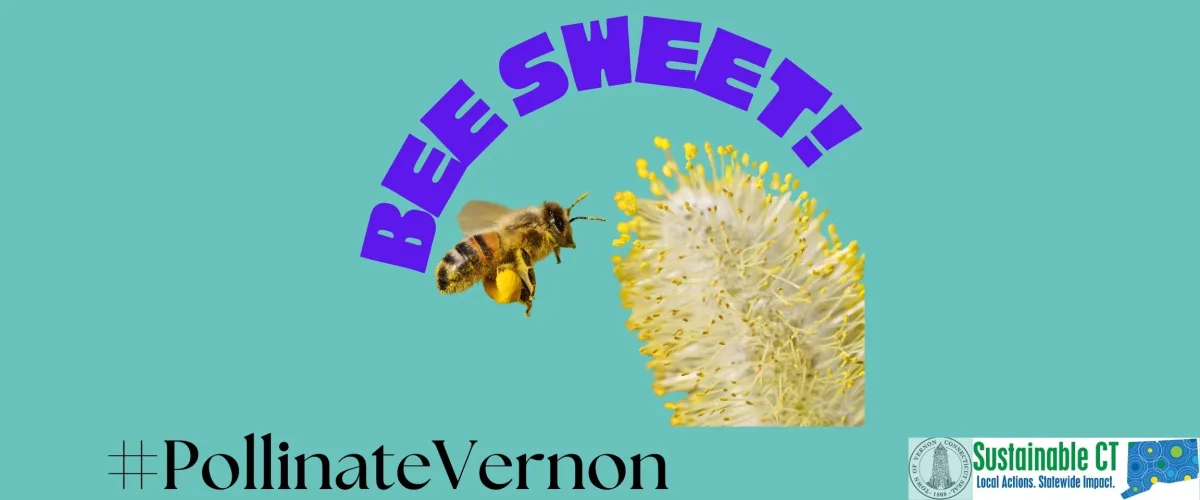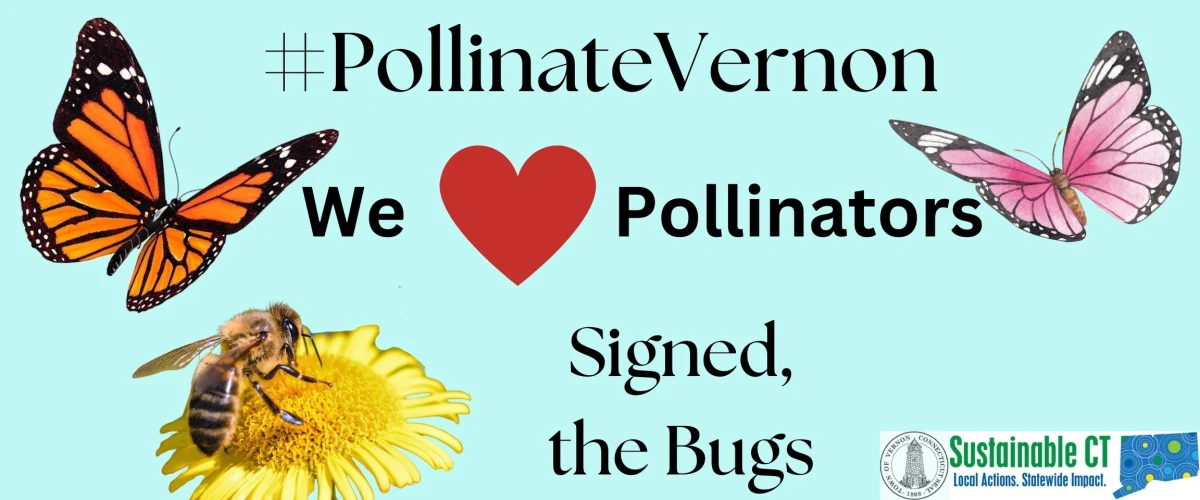Pollinate Vernon

Pollinators are critically important to our world
Pollinators such as honeybees, butterflies, birds, bats and other animals are hard at work providing vital but often unnoticed services. Without the work of pollinators we would not have apples, bananas, blueberries, strawberries, melon, peaches, potatoes, vanilla, almonds, coffee and chocolate.
We need pollinators!
Three quarters of the world’s flowering plants and about 35 percent of the world’s food crops depend on animal pollinators to reproduce. That’s one out of every three bites of food you eat. More than 3,500 species of native bees help increase crop yields. Some scientists estimate that one out of every three bites of food we eat exists because of animal pollinators like bees, butterflies and moths, birds and bats, and beetles and other insects.
How pollination works
Pollinators visit flowers in their search for food (nectar and pollen). During a flower visit, a pollinator may accidentally brush against the flower’s reproductive parts, unknowingly depositing pollen from flower to flower. The plant uses the pollen to produce a fruit or seed. Many plants cannot reproduce without pollen carried to them by foraging pollinators.
Helping pollinators
The Connecticut Department of Transportation has an initiative to help pollinators.
Pollinators in Connecticut -- information from the Connecticut Department of Energy and Environmental Protection.
The Connecticut Agricultural Experiment Station has a variety of information about what you can do.
Helpful pollinator information

